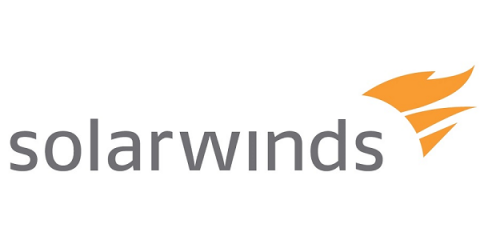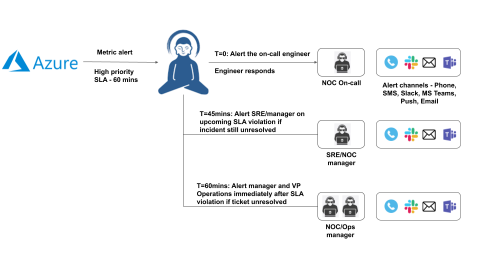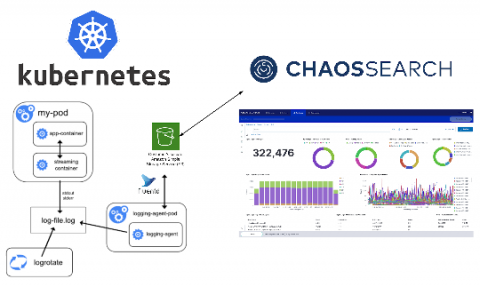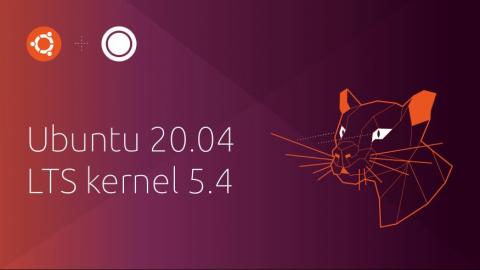Operations | Monitoring | ITSM | DevOps | Cloud
Blog
Ivanti Unified Endpoint Management: Everything You Need to Know
Your organization’s employees depend on multiple devices, and each should be personalized to their business needs. However, managing those endpoints demands coverage of both the user experience and the device. With Ivanti, you gain that coverage with an integrated, total-picture management experience.
A 'No-BS' Checklist for Kubernetes
KubeCon + CloudNativeCon sponsored this post, in anticipation of KubeCon + CloudNativeCon EU, in Amsterdam. If you’re new to Kubernetes and have been tasked with researching a vendor-supported platform for your enterprise, chances are you’re feeling overwhelmed. You’ll encounter a seemingly never-ending list of vendors, all promising more or less the same. To help you navigate the space and ask vendors the right questions, we created this no-BS Kubernetes checklist.
Sending Azure Monitor outage notifications to Microsoft Teams
Microsoft Azure is a cloud computing service providing infrastructure as a service (IaaS), software as a service (SaaS) and platform as a service (PaaS) supporting multiple Microsoft Specific and third-party services and systems with 90+ compliance offerings and trusted by 95% of Fortune 500 companies to base their business on. What is a system downtime and how does it affect me or my business?
Failover Conf Wrapup
Failover Conf was held on April 21, 2020, online. The folks at Gremlin came up with the idea of a virtual conference about reliability after many in-person conferences started being postponed or canceled due to COVID-19. The conference was a lot of fun to attend. I’ll be sharing some of my thoughts on the event and the talks I was able to catch. The videos for the talks haven’t been posted yet, but I’ll update this post with links to them when they are.
Kubernetes is eating the world; you can digest K8's plume
Innovation in hypervisor technology in the early 2000’s from both commercial and open source projects was the genesis for the public cloud as we know it today. Virtualization and Moore’s law, together with advances in storage technology, mobile and wireless, created a data explosion that continues to accelerate through today.
What's new in Ubuntu Desktop 20.04 LTS?
Well, here it is! Ubuntu is the world’s most popular open-source desktop operating system, and we think this is our best release to date. Ubuntu 20.04 LTS is an enterprise-grade, secure, cost-effective operating system for organisations and home users.
Ubuntu Server 20.04 LTS: stability, security and more
Ubuntu Server 20.04 LTS (long-term support) is here with enterprise-class stability, resiliency and even better security. As an LTS release, it will be supported by Canonical until 2025. However, customers can extend the support by an additional five years through the ESM (Extended Security Maintenance) service as part of their UA-I (Ubuntu Advantage for Infrastructure) subscription.
Ubuntu kernel 5.4: What's new with Ubuntu 20.04 LTS
Ubuntu 20.04 LTS has just arrived. The latest LTS comes with a new version of the Linux kernel – 5.4 – which brings a lot of exciting new features, faster boot times, enhanced performance and security. Additionally, the Canonical kernel team ran benchmark tests to validate the performance improvements of the new kernel. Defining which Linux kernel should be included in a long-term support release of Ubuntu is the essence of the work of the kernel team at Canonical.
How to work from home: 9 tips from the folks at Sensu
Even before a global pandemic caused many of us — willingly or not — to suddenly start working from home, it had long been on my list to compile a “work from home” guide, crowdsourcing the advice from the folks here at Sensu. As a remote-first company, we have our fair share of pro tips for working from home; we also want to acknowledge that these times are anything but normal.











